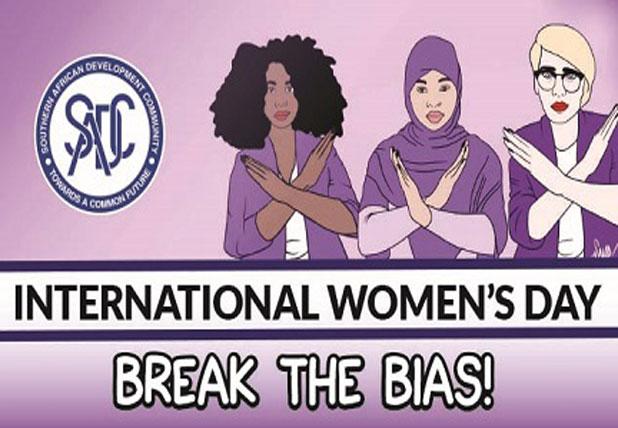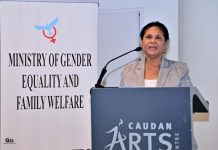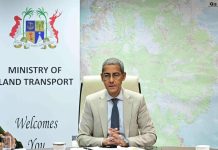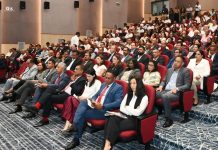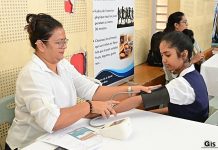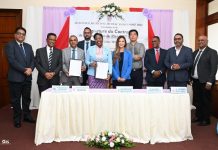Africa-Press – Mauritius. On the occasion of International Women’s Day observed on 8 March, the Southern African Development Community (SADC) Executive Secretary, Mr Elias M Magosi, highlighted that the Day recognises the existence of gender inequalities and makes an unequivocal call to action for accelerating women’s equality through a campaign theme; “breaking gender bias and reducing stereotypes and discrimination to promote diversity, equity, and inclusion”, which is being promoted under the hashtag #BreakTheBias.
The SADC, he underlined, joins the international community in this campaign to #BreakTheBias, recognising that each day, women battle harmful stereotypes that affect their careers, health, wellbeing, lifestyles, relationships, education, and so much more.
Mr Magosi further pointed out that data available indicates that women in the SADC region represent the majority of the poorest and the most vulnerable among social groups, due to the general subordinate legal status, limited access to productive resources such as land, technology, credit, education and training, formal employment, as well as susceptibility to HIV and AIDS.
Recently, inequality has been exacerbated by the COVID19 pandemic, he added. In the face of climate change, he said, women continue to feel its disproportionate impacts, through increased difficulties in accessing water and agriculture activity practices, areas that are dominated by women.
The Executive Secretary emphasised that women must take leadership and stewardship in the areas of natural resource management and environmental conservation, the water-food-climate nexus, livelihoods and relevant social and physical infrastructural support, sexual and reproductive health and rights, girls’ education as well as other relevant dimensions such as data collection, youth engagement and grassroots solutions for climate change and disaster risk reduction.
Women, he added, must also take an active part in the response measures to climate change adaptation, mitigation, technology, capacity building and financing.
This International Day of Women, he underlined, must serve as a reminder to all stakeholders to use every tool that cover all the dimensions of Gender equality for sustainability.
Key among the instruments are the Regional Indicative Strategic Development Plan (RISDP2020-2030) and SADC Vision 2050, which do not only identify gender as an important cross cutting issue but also recognise gender equality and women’s empowerment as important enablers of regional integration.
He called on all stakeholders to accelerate the implementation of the different frameworks on climate change and disaster management which include, among others, the SADC Protocol of Environmental Management for Sustainable Development, the revised SADC Regional Climate Change Strategy and Action Plan 2021; the SADC Biodiversity Strategy and Action of 2015; the SADC Green Growth Strategy, 2015; and the SADC Sub-Regional Action Plan (SRAP) to combat desertification, which includes the implementation of the Great Green Wall Initiative.
In implementing these policy instruments, all efforts must be made to put women and girls at the centre, guided by the overarching SADC development frameworks of the RISDP2020-2030 and SADC Vision 2050, he said.
“It is our collective duty to break gender biases and reduce stereotypes and discrimination to promote diversity, equity and inclusion in the SADC region”, he said while adding that “we can #BreakTheBias and, ultimately, achieve Sustainable Development Goal (SDG) 5 on achieving gender equality and empowering all women and girls, if we work together in unity”.
For More News And Analysis About Mauritius Follow Africa-Press


